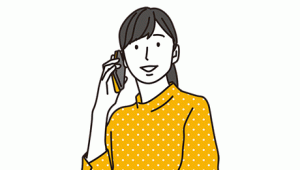To take self-care and cope aptly with stress
To take self-care and cope aptly with stress
Having various problems such as relationship problems, financial problems, work/study stress, etc., aren't you trapped because you don't know what to do or can't find anyone to talk to about your problems?
When you are alone and suffering with difficulties in life, you tend to forget to take care of yourself. Here, clinical psychologists and licensed psychologists will tell you how you can ease that suffering, even if only a little.
1. What is stress?
The word "stress" that we often use is divided into "stressor" and "stress reaction” in psychology. The term "stress reaction" refers to changes in one's mind, body, or behavior such as "I feel irritated," "I feel nervous," "My stomach hurts," "I can't sleep," or "I can't sit still for some reason," and the event or situation that causes these changes is called a "stressor." For example, there is a trouble in your relationship, your studies or club activities are not going well, or there is an event coming up where you need to demonstrate your achievements.
2. Key points on how to cope with stress
We cope with stressors and stress reactions in a variety of ways. Continuing to hold back frustration for a period of time or taking out your frustration on things or people around you can lead to excessive stress and hurt both you and those around you. Learn the correct coping methods and deal with stress effectively.
(1) Coping with feelings
By finding a method that works for you, you can expect to send positive messages to yourself and relax and calm yourself.
For example, you can use the following ways.
- Listening to music
- Keeping a diary
- Painting a picture
- Looking at the sky
- Taking a deep breath
- Stretching
- Singing a song
- Taking a relaxing bath
- Taking a good sleep
(2)Social Support
Talking to someone or getting help may help you sort out your feelings and find easier ways to cope with stress. First, notice and express your feelings. Taking care of your own feelings and those of your loved ones will help protect you. Also, try to stay connected with others. Stay connected with your friends, fellow hobbyists, school teachers, family and relatives, and anyone else you are connected with, whether it is through LINE, e-mail, phone, letter, SNS, or whatever. You will feel safer if you have someone you can always talk to and stay connected to the society.
(3) How to deal with the problem itself
It is necessary to face the stressor event and take action to solve the problem itself. Preparing such as keeping a diary and doing image training, will help you to calm down and cope with the situation.
The most commonly used "stress release" is often "coping with feelings". Having many ways to cope with stress can be reassuring. However, even if "stress release" temporarily removes the stress reaction, it does not solve the problem itself. Sometimes it is important to "deal with the problem itself" by also using "coping with feelings" and "social support”.
3. Concrete ways to relax
Even if you are told to "relax," it is difficult to actually relax. We will introduce the "progressive relaxation method" as a method that uses the body's own mechanisms to relax. The "progressive relaxation method" is a method to acquire a relaxed state throughout the body by using a mechanism that makes it easier to relax when muscles are tensed and then relaxed.
(1)Hands
(2) Upper Arms
(3) Back
(4) Shoulders
(5) Neck
(6) Face
(7) Whole body
We have given you some tips for coping with stress. Please take care of yourself by practicing self-care in order to avoid holding on to stress and to cope well with physical and mental disorders.
The contents of this page are excerpted and quoted from the "Special Website (Collection of Stress Management Techniques)" (The Association of Japanese Clinical Psychology).


